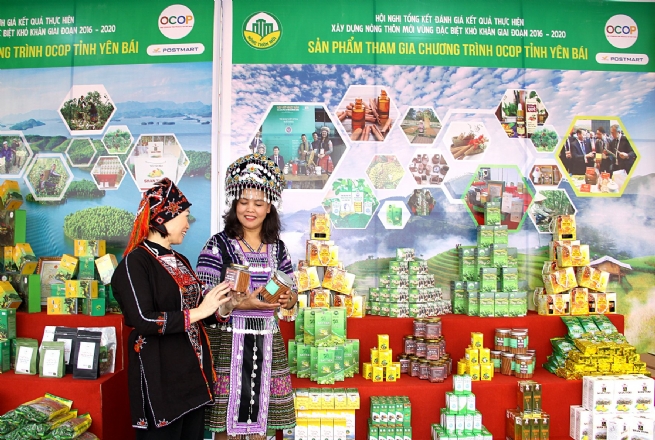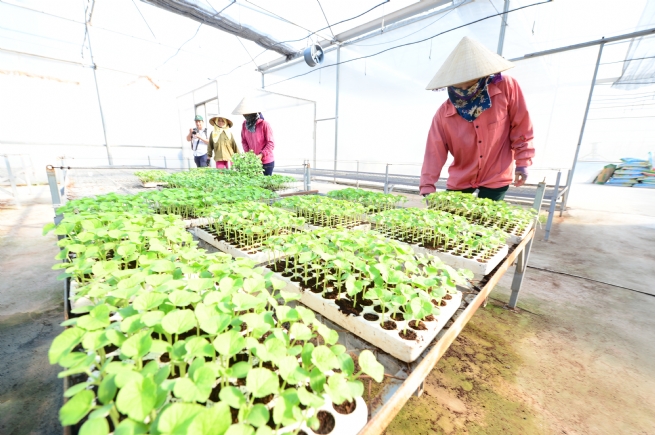9:27:51 AM | 5/21/2021
Currently, all 63 provinces and cities have deployed their own One Commune One Product (OCOP) programs. 60 of them have classified their OCOP products, 4,733 of which are qualified for 3 stars upward (62.16% are 3-star products, 36.1% are 4-star products and 1.74% are potentially 5-star products.
Thriving rural economy
After three years of deployment, the OCOP Program has become a central, influential policy engaged by the entire political system and a priority solution in rural economic development in all localities in the country. It has produced positive impacts on socio-economic development in rural areas, tapped local potential and strengths in distinctive specialties and cottage industries developed from advantageous production conditions, raw material areas and traditional cultures to increase the value of OCOP products. Typical examples include Shan Tuyet Hoang Su Phi tea in Ha Giang province, Tan Cuong and Thai Nguyen tea, Son La coffee and Soc Trang rice. The program has facilitated production standardization and improved product quality. Nearly all OCOP products have commercially standardized brands and packages which show increasing production levels of farmers. Many cooperatives and enterprises have built material zones and gradually shifted from smallholding production to a closed value chain. Currently, 393 OCOP product value chains are operating effectively, helping raise production levels and incomes for rural people, especially in remote and ethnic minority areas.

According to the Central Coordination Office for the National Target Program on New Rural Development, certified OCOP products increased in value, helped producers scale up operations and revenue, preserve and promote handicraft and cultural values for rural economic development. Through the OCOP Program, they have gradually transformed smallholding production into a closed value chain, especially when cooperatives and SMEs are in place. On the other hand, the program has created many jobs and promoted rural economic development. Typically, OCOP producers in Quang Ninh province employ over 3,800 full-time workers and OCOP producers in Ha Tinh province create 2,196 jobs.
Spreading OCOP program
The OCOP program, however, still poses many difficulties. As a new program concerning many fields, especially due to its purpose of awakening local potential and advantages for rural economic development, some localities are, at first, confused about what to do, how to determine advantages, potential and producers. They only focused on existing products rather than pay attention to developing new products using locally distinctive inputs and methods.

A representative of the Central Coordination Office said, to strongly spread the OCOP program and make it a focus of rural economic development, localities need to make products from local inputs, natural advantages and culture, especially in mountainous areas and ethnic minorities, to achieve sustainable development and adapt to climate change. When making OCOP products, it is necessary to base on building agricultural and medicinal raw materials, preserving and maintaining rural landscapes and protecting the ecological environment. Besides, it is essential to standardize and develop OCOP products for the value chain, match production advantages and market requirements, standardize products in line with local advantages and conditions. Promoting advertising, trade promotion and supply-demand matching for OCOP products is also important.
Additionally, provinces and cities need to pay heed to building and completing their OCOP product management and monitoring system, organizing annual product evaluation and grading, enhancing information technology application to simplify administrative procedures with respect to OCOP product evaluation and classification. As for the OCOP program support system, it is necessary to improve the operational capacity to effectively build OCOP startup and product development centers to entice OCOP producers and link with tourism development.
By Minh Ngoc, Vietnam Business Forum